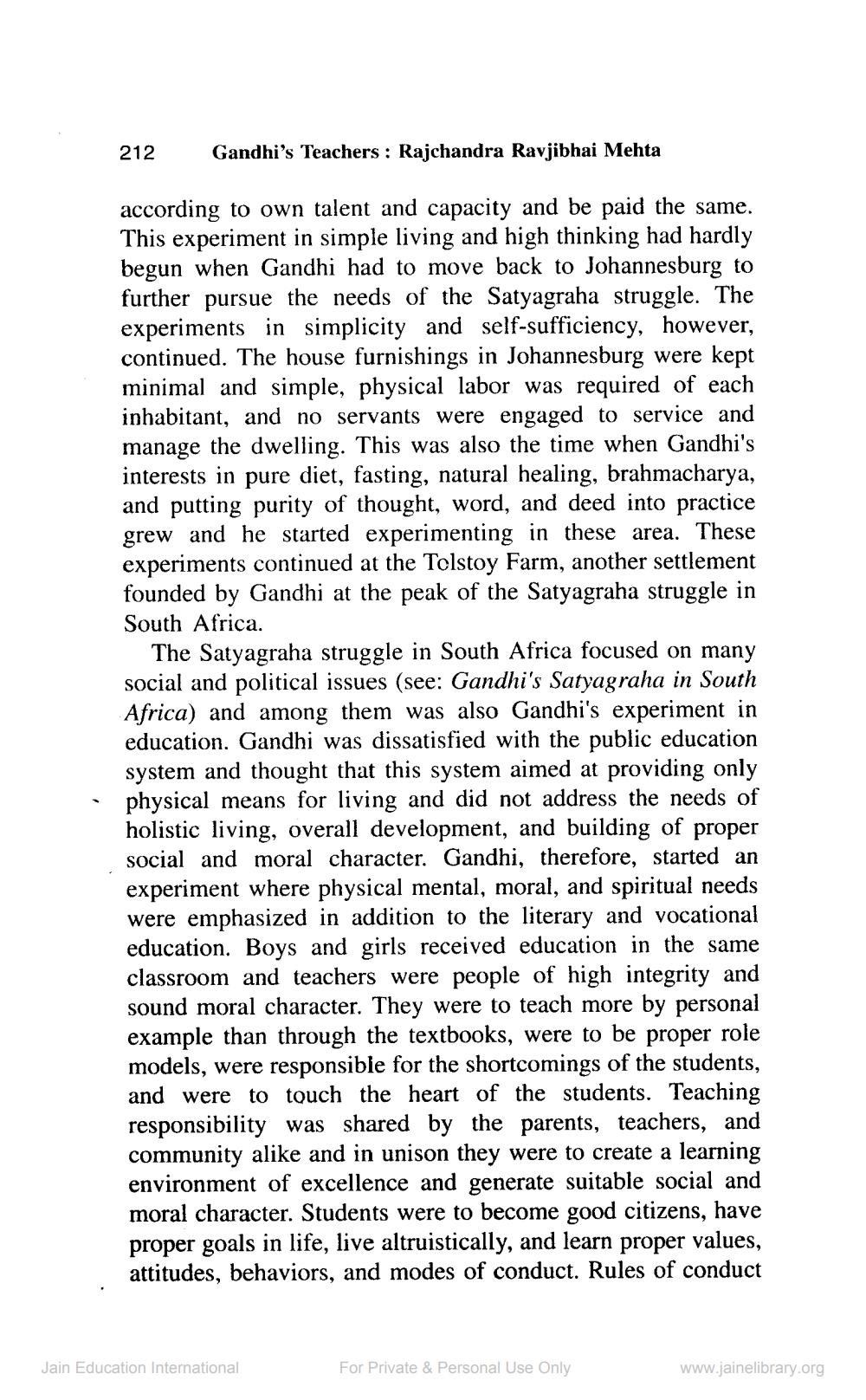________________
212
Gandhi's Teachers : Rajchandra Ravjibhai Mehta
according to own talent and capacity and be paid the same. This experiment in simple living and high thinking had hardly begun when Gandhi had to move back to Johannesburg to further pursue the needs of the Satyagraha struggle. The experiments in simplicity and self-sufficiency, however, continued. The house furnishings in Johannesburg were kept minimal and simple, physical labor was required of each inhabitant, and no servants were engaged to service and manage the dwelling. This was also the time when Gandhi's interests in pure diet, fasting, natural healing, brahmacharya, and putting purity of thought, word, and deed into practice grew and he started experimenting in these area. These experiments continued at the Tolstoy Farm, another settlement founded by Gandhi at the peak of the Satyagraha struggle in South Africa.
The Satyagraha struggle in South Africa focused on many social and political issues (see: Gandhi's Satyagraha in South Africa) and among them was also Gandhi's experiment in education. Gandhi was dissatisfied with the public education system and thought that this system aimed at providing only physical means for living and did not address the needs of holistic living, overall development, and building of proper social and moral character. Gandhi, therefore, started an experiment where physical mental, moral, and spiritual needs were emphasized in addition to the literary and vocational education. Boys and girls received education in the same classroom and teachers were people of high integrity and sound moral character. They were to teach more by personal example than through the textbooks, were to be proper role models, were responsible for the shortcomings of the students, and were to touch the heart of the students. Teaching responsibility was shared by the parents, teachers, and community alike and in unison they were to create a learning environment of excellence and generate suitable social and moral character. Students were to become good citizens, have proper goals in life, live altruistically, and learn proper values, attitudes, behaviors, and modes of conduct. Rules of conduct
Jain Education International
For Private & Personal Use Only
www.jainelibrary.org




